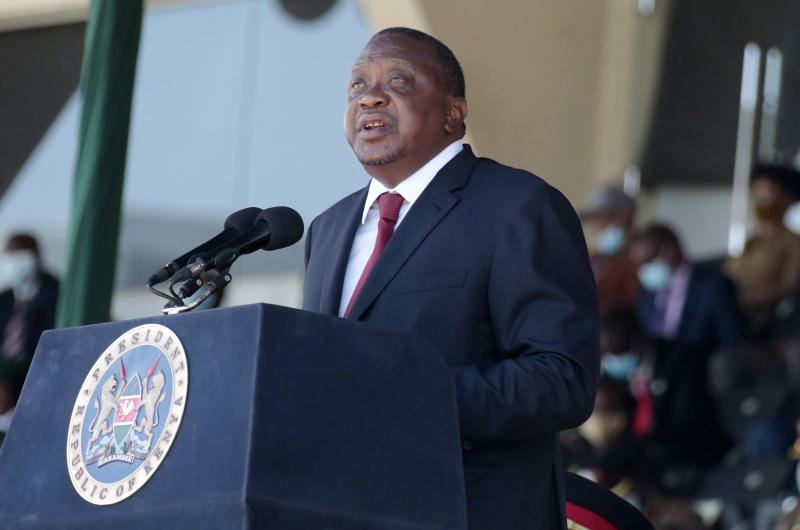×
The Standard e-Paper
Home To Bold Columnists

President Uhuru Kenyatta yesterday made a case for an expanded Executive to ensure political inclusivity for a nation often visited by violence during general elections.
In his pitch for the Building Bridges Initiative (BBI) proposals, Uhuru said it does not augur well for the country’s nationhood to have only two occupants at the apex of the Executive – the president and deputy president.